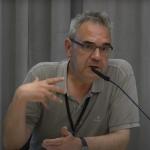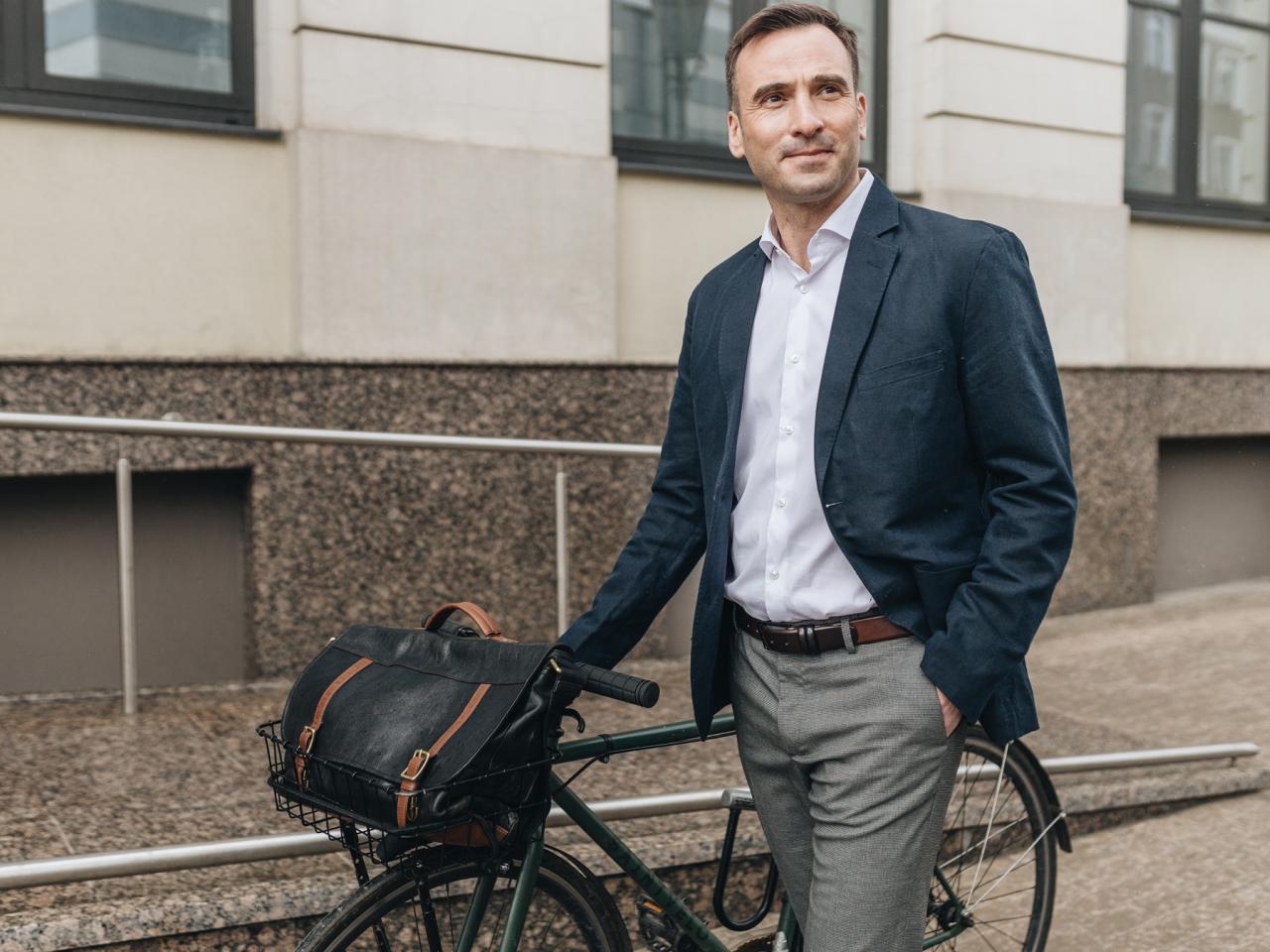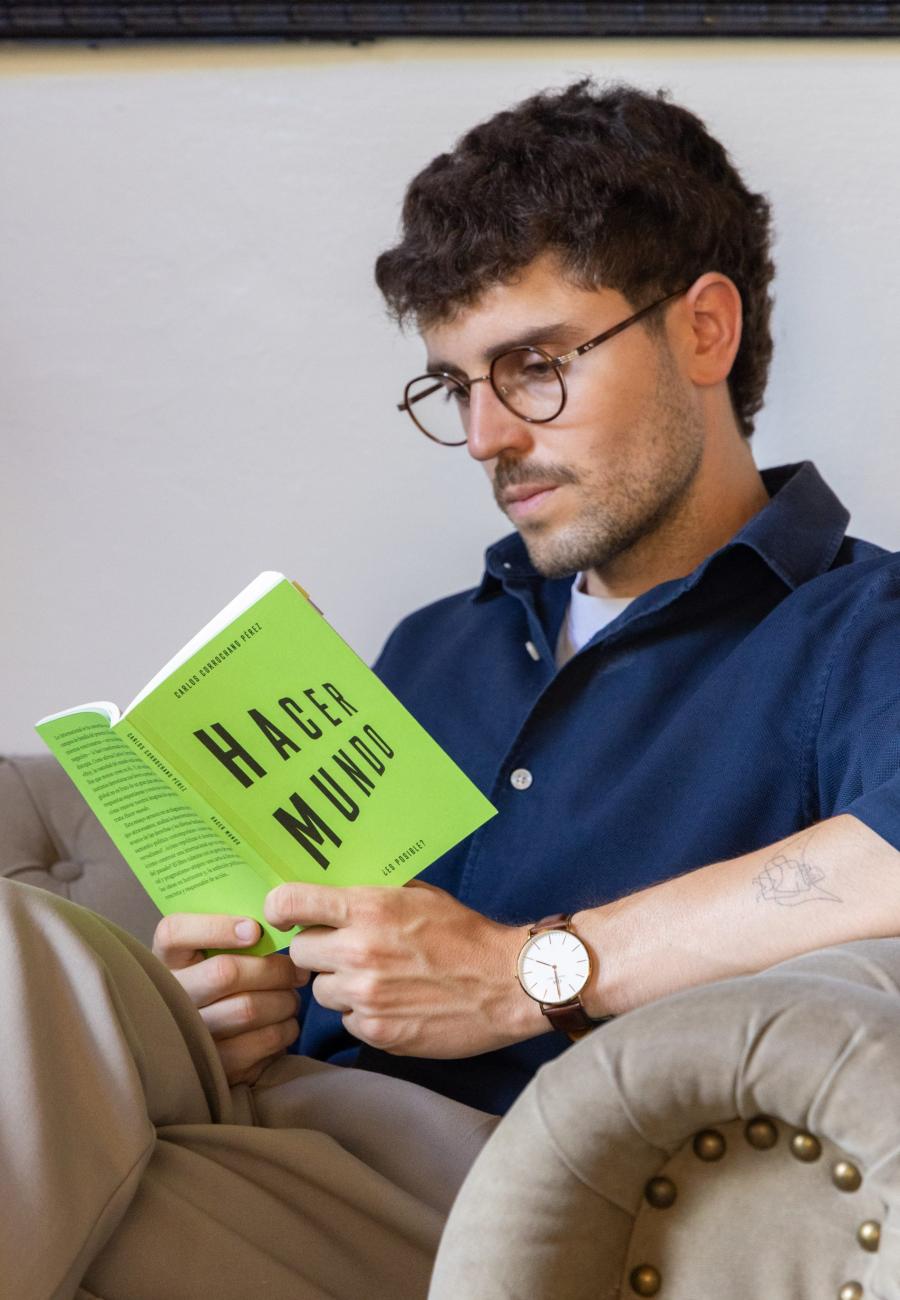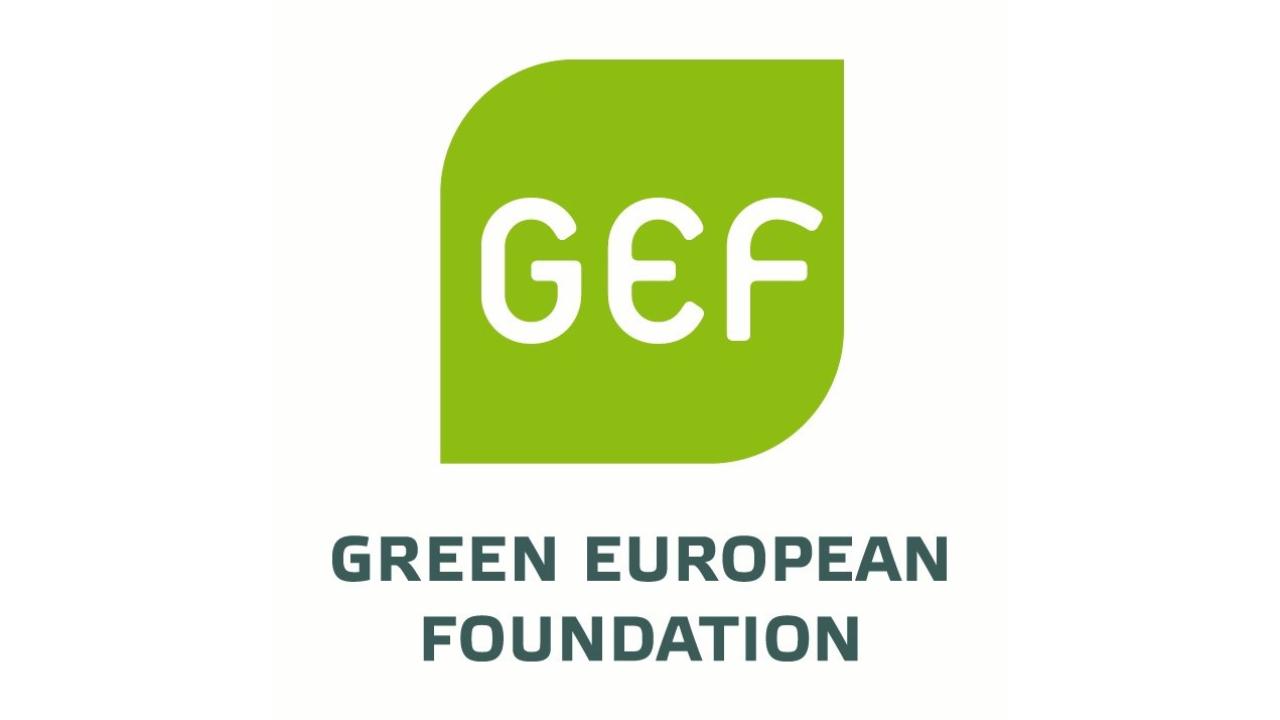I was therefore dismayed when leftists in Western and Southern Europe started explaining Russia’s aggression by quoting and referencing the work of realist theorists – especially John Mearsheimer, who is friends with Viktor Orbán and a lot of other dubious people. Sometimes there’s such a huge gap between how these leftists approach international politics and how they approach domestic politics. At home, you’re allowed to be an idealist: you can discuss ideology, invoke principles, and take moral stances. But once you have crossed national borders, anarchy descends, and pessimism prevails. Your only choice is to be a realist and say that Ukraine doesn’t stand a chance, that it needs to surrender, or even that it is partly to blame for the war. This approach is what I call the realist iron cage."
Mārtiņš: "I recognise this from voting behaviour in the European Parliament. On the issues of defence and Ukraine, The Left group is most closely aligned with groups on the furthest right of the political spectrum.
Of course, we also have some disagreements within the Greens/EFA group on these issues. To provide some historical context: over the last 500 years, Russia has invaded Finland five times and Latvia six times. Meanwhile, Italy, Spain, and Portugal have never experienced Russian invasions. This partly explains the countries’ differing viewpoints; these are difficult to bridge. If a fellow MEP has a negative view on defence spending or military support for Ukraine, I can’t turn that into a positive view. But maybe I can persuade someone with a neutral position to take a positive stance. Time is limited, so I pick my battles."
Have you succeeded in making the Green group more supportive of defence?
Mārtiņš: "I think so. It’s easy to measure. Just look at how the group voted in the past and how it votes now.
In one of our group meetings, I showed a huge map of the Baltic region and indicated where Russia had placed its armed forces along the border. I explained why the Suwałki Gap is the most vulnerable point on this map, because Russia wants to create a ground corridor to its exclave Kaliningrad in this narrow border area of Lithuania and Poland. I indicated how Russia would move its troops to take the Suwałki Gap and how NATO forces would respond. I think this presentation was a game changer; a lot of my fellow group members realised the scenario it portrayed was realistic. Afterwards, I was invited to meet personally with many of my Green colleagues and their staff. In my opinion, having new members from Latvia but also from Lithuania, since 2024, has certainly made a difference within the Green group."
What are your views on the new NATO defence spending targets: 3.5 per cent of GDP for the military and 1.5 per cent for defence infrastructure and resilience?
Mārtiņš: "I’m not happy that the debate is focused on percentages; we should instead be talking about capabilities. If all people hear from the military is 'give us more money', you won’t convince them. Instead, the focus should be on the new capabilities that are going to be delivered. Better air defence, for instance, to protect our critical infrastructure and reduce the risk of power blackouts or interruptions in drinking water supply.
Also, we shouldn’t talk about spending but rather about investing. Take the defence line that Finland, the Baltic states and Poland are building along their borders with Russia and Belarus. The fortifications will be constructed by local companies, which create jobs and pay taxes. Other industries will benefit from the demand for cables, electronic surveillance, and anti-drone systems. The innovations that will ready us to fight – not the last war but rather the next war – will have civilian spin-offs. Strengthening our defence will therefore also boost our economies."
Carlos: "GDP indicators distract us from having a real debate around defence. A target of 3.5 per cent seems arbitrary and disproportionate. It’s much more important to discuss better European coordination of security and defence policies, sharing capabilities, and more democratic decision-making.
The emphasis on spending targets has reinforced the old 'guns versus butter' dichotomy. This logic comes from a liberal economic framework that assumes a fixed pool of resources available to governments – if you spend on one thing, you can’t spend on another. As an ecosocialist, I find it striking how many on the Left have internalised this framing. Even in Spain, where barely a decade ago we witnessed first-hand the devastation caused by such economic thinking. Yet history shows that investments in security can, in fact, serve as a catalyst for broader social progress. The real question is not whether you spend, but how: how you channel those investments, and how you connect them to social, economic, and climate justice."
Mārtiņš: "'Guns or butter' is indeed a false choice. Look at Finland: it has been investing heavily in security and defence for decades, yet it has one of the best social security systems in the world. In the Baltics, we’re rapidly increasing our defence investments, but we haven’t cut a single cent from our welfare arrangements."
Should governments increase taxation of the rich to finance extra defence spending and support for Ukraine?
Carlos: "Yes. Some progressives in Europe have already brought this to the table. It’s a smart way to connect people to causes that seem distant from their daily lives. Linking national and international solidarity, security and economic justice is both intellectually and emotionally compelling. The Spanish government’s approach – that we should finance defence investments through common European debt – is also useful. It resonates with the rest of Southern Europe, so it could help bridge the North-South divide on security."
If there were no defence spending target, wouldn’t we need another yardstick to determine whether each NATO member is doing its part?
Mārtiņš: "Yes and no. Let me use a metaphor. If you live in a village and a single house is on fire, you don’t send firefighters all over the village; you concentrate them where the problem is. The same goes for Europe’s defence. The problem is on the eastern border, so we should concentrate our armed forces there. The question of whether countries such as Spain achieve the 3.5 per cent target is therefore less pressing. Spain would make a bigger contribution to deterring Russia if it increased its defence investments by 0.5 per cent in order to send more troops and equipment to the Baltics. There are already Spanish forces in Latvia, and we are very grateful for that. But we would welcome more of them.



